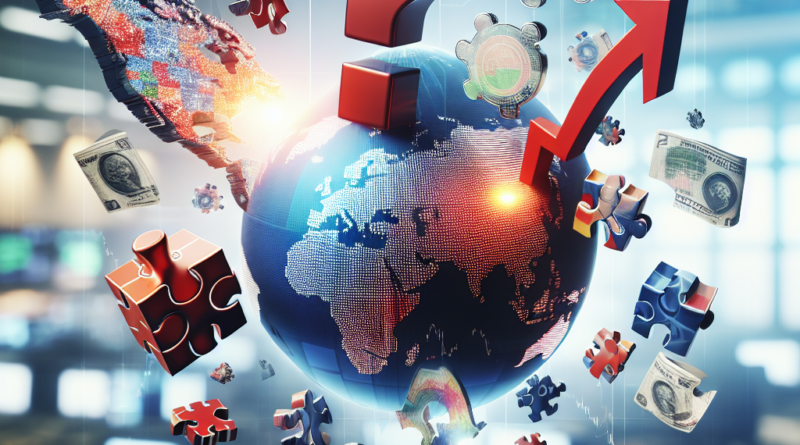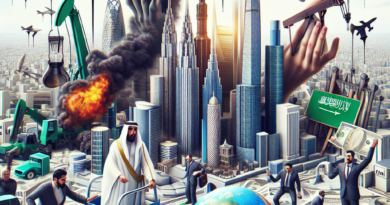5 Unanswered Questions about the Global Economic Crisis
The Global Economy Facing Uncertainties
An unstable global economy is what emerges from observing some events and trends of the past week.
In an increasingly uncertain, complex, and risky international context, powers are seeking new balances to stop winds of internal and global crises that are growing stronger.
From central banks’ monetary policies to currency fluctuations, from growth data to prospects on energy transition, at least 5 questions can summarize as many concerns.
1.
Will the Fed not cut rates?
According to projections, Fed policymakers now expect to cut rates only once this year, compared to the three reductions anticipated in March.
The opinions of individual officials on the best path to reduce financial burdens have been conflicting.
The Fed’s “dot plot” showed that four policymakers did not foresee rate cuts this year, while seven anticipated only one cut and eight anticipated two cuts.
A key measure of underlying inflation has meanwhile decreased for the second consecutive month in May, a pleasant surprise for Fed officials looking for signals to start lowering interest rates.
The data, coupled with the deceleration of the core consumer price index in April, could represent the early stages of inflation recovery on a downward trend.
Meanwhile, the issuance of catastrophe bonds has just reached a record level as the market braces for a tough hurricane season that could cause substantial damage.
Sales of these so-called cat bonds have increased by 38% this year through May compared to the same five-month period in 2023, which was already a record, according to Artemis, a compiler of insurance-linked securities data.
2.
Europe in Political Chaos, What Will Happen?
The euro has dropped to one-month lows against the dollar after French President Emmanuel Macron and German Chancellor Olaf Scholz were defeated by far-right parties.
Concerns are rising that the outcome of the European elections has also overshadowed the long-term prospects for the world’s second most traded currency.
The prospects of greater integration and a united Europe have been called into question.
All European markets have been shaken.
The UK’s economic recovery, meanwhile, stalled in the period leading up to the general elections, a setback for Prime Minister Rishi Sunak, who campaigned on evidence that the economy is finally turning around.
Eurozone industrial production unexpectedly dropped at the beginning of the second quarter, casting a shadow on the economic recovery this year compared to the lackluster performance in 2023.
3.
EU tariffs against China, What’s Next?
The German government is reportedly working to prevent the implementation of new EU tariffs on Chinese electric vehicles—or at least to ease them if a complete halt is not possible, according to people familiar with the matter.
Brussels has decided to impose additional tariffs on electric cars shipped from China as some automakers have been accused of distorting the market through state subsidies and violating WTO rules.
Meanwhile, a potential Chinese retaliatory response is expected, which could target some goods exported by the EU to the dragon.
The era of protectionism begins, with increasingly uncertain effects.
4.
Uranium Rush?
After the 2011 Fukushima disaster, nuclear energy once again instilled too much fear, and uranium, the delicate and deadly fuel that powers reactors, began to stagnate in the global commodities market.
But with intensifying climate change and governments worldwide turning to carbon-free energy generated by nuclear power plants, interest in uranium deposits has increased, first slowly and then, after Vladimir Putin invaded Ukraine, at a frantic pace.
5.
Yen Towards the Abyss?
The Bank of Japan’s decision on Friday to keep interest rates unchanged was widely expected, but traders were surprised that it simply signaled a cut in debt purchases without providing figures or a timing.
Given that more than half of the economists surveyed by Bloomberg expected the central bank to start reducing its purchases in June, the announcement was seen by many analysts and investors as a delay in policy normalization vital for the currency’s recovery.




